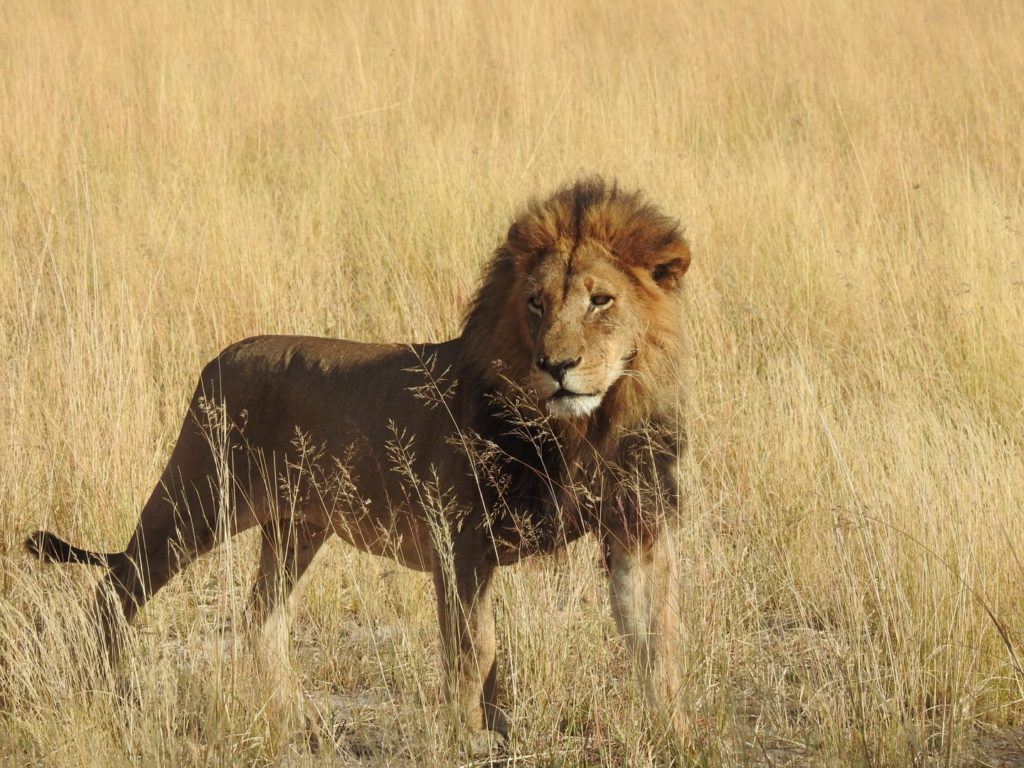-
With an additional LRF grant in 2017, African Parks took significant steps to prevent lion populations from going extinct in Malawi through the reintroduction of lions into Majete and Liwonde National Parks. Now, the LRF is continuing to support African Parks with the development of a lion population management plan and the protection of the lions in Liwonde National Park.
-
Botswana’s Central Kalahari Game Reserve (CKGR), the Kgalagadi Transfrontier Park, and the adjacent Wildlife Management Areas form critical habitats for lions with a population of at least 1,475 individuals. The region is changing as a result of more human development. Kalahari Research and Conservation, in conjunction with a WCN Partner organization, Cheetah Conservation Botswana, created a project designed to support land use planning in these critical lion landscapes that tackle human-lion conflict.
-
The LRF aims to see more Africans in leadership positions within the conservation field. The LRF is helping support an internship with Panthera for Moreangels Mbizah, a Zimbabwean national who recently qualified for a PhD in lion conservation from the University of Oxford. Her internship will directly benefit initiatives related to lion conservation in the KAZA Transfrontier Conservation Area while at the same time giving her the skills necessary to become a future conservation leader.
-
Tanzania’s Selous Game Reserve is one of Africa’s largest protected areas and might contain one of the largest lion populations in the world. Yet, it is under-resourced when it comes to conservation. The LRF funded the Frankfurt Zoological Society to support the deployment of a new de-snaring team as well as support measures to tackle poisoning of lions and other wildlife species. Additionally, LRF has funded Dr. Amy Dickman of the University of Oxford’s WildCru, and founder of the Ruaha Carnivore Project, to survey lions in the Selous and to engage key communities in the area to identify the key threats to lions.
-
Conservation and Wildlife Fund (CWF) began operating in 2017 as a collaborative alliance between some of the commercial tourism operators and conservation organizations working in the Hwange landscape in Zimbabwe. LRF granted Mujon Baghai, a consultant, to facilitate the administrative and governance challenges that CWF is facing. With a smoother run and more efficient CWF, they will have the opportunity to do the essential conservation work of strengthening law enforcement, community engagement, and further support wildlife authorities.
-
Current literature states that there aren’t any lions in Sierra Leone, but in 2017 a camera trap caught a photo of a male lion in the southwestern region of the Outamba Kilimi National Park. Sarah Bell of Pan Verus Project received a grant from LRF in order to do an exploratory camera trap survey of the national park. If this survey is successful in finding a resident group of lions, Sarah and her team plan to utilize this information to gain support from the national park, the Sierra Leonean government, and international organizations.
New LRF grants support the protection and recovery of lions Africa-wide
In the last two months, the Lion Recovery Fund provided grants to the following organizations in Botswana, Malawi, Zimbabwe, Tanzania, and Sierra Leone: Ruaha Carnivore Project and WildCru, Kalahari Research & Conservation and Cheetah Conservation Botswana, African Parks, Panthera, and independent consultants.
These organizations work to resolve many challenges that impact the safety and restoration of lions across Africa, such as securing critical habitat for lions and building corridors for them to move safely between habitats, tackling snaring and poaching in protected parks and reserves, mitigating human-lion conflict by working with local communities, supporting African conservation leaders so they can take up leadership positions in the conservation space, and more.
To date, the LRF has invested $5.5 million to 59 projects with 34 different organizations across 18 countries, for the benefit of lions.


